This content originally appeared on The Real News Network and was authored by The Real News Network.
This post was originally published on Radio Free.
This content originally appeared on The Real News Network and was authored by The Real News Network.
This post was originally published on Radio Free.
This content originally appeared on Radio Free Asia and was authored by Radio Free Asia.
This post was originally published on Radio Free.
When Solomon Kahoʻohalahala arrived in Jamaica in mid-March to attend a meeting of the International Seabed Authority, he felt the weight of the moment on his shoulders.
The United Nations agency is in the midst of crafting regulations to govern a new industry for deep-sea mining that involves scraping mineral deposits from the ocean floor, often referred to as nodules. But after three years of advocating on behalf of Indigenous peoples, none of Kahoʻohalahala’s or his colleagues’ recommendations had been incorporated into the latest draft proposal.
“It was disheartening and discouraging for us to be absolutely dismissed,” said Kahoʻohalahala, who is Native Hawaiian from the island of Lanaʻi in Hawaiʻi. “There was no option for us except to make our best case.”
On the first day of the two-week gathering, Kahoʻohalahala urged the nation-state representatives gathered at the International Seabed Authority headquarters to consider Indigenous peoples’ perspectives. And to his surprise, many representatives agreed with him.
By the time he flew from the Caribbean back to the Pacific the following week, Kahoʻohalahala felt relieved and hopeful. The ISA had agreed to give him and other Indigenous advocates up until 2026 to come up with further recommendations. Moreover, the International Seabed Authority declined a request from the Pacific island country of Nauru in Micronesia to set up a process to evaluate their application to mine the high seas, and reiterated the authority’s previous commitment to finalizing the mining regulations before allowing seabed mining to proceed.
“That was very, very uplifting,” Kahoʻohalahala said.
But no sooner had Kahoʻohalahala departed Jamaica than he’d heard the news: The Metals Company, a Canadian seabed mining company, announced it is working with the Trump administration to circumvent the international regulatory process and pursue mining in the high seas under a 1980 United States law.
Gerard Barron, CEO of The Metals Company, said that the company believes they have enough knowledge to manage environmental risks. They plan to submit applications to the National Oceanic and Atmospheric Administration to mine the deep seas within the next three months.
“We’re encouraged by the growing recognition in Washington that nodules represent a strategic opportunity for America — and we’re moving forward with urgency,” he said.
The move unleashed harsh criticism from more than 40 nation-states, from the United Kingdom to China. Leticia Carvalho, the secretary-general of the International Seabed Authority, said that international law of the sea that gives the agency authority over mining in the high seas “remains the only universally recognized legitimate framework.” In other words, the U.S. doesn’t have the right to permit seabed mining beyond its national boundaries.
“Any unilateral action would constitute a violation of international law and directly undermine the fundamental principles of multilateralism, the peaceful use of the oceans and the collective governance framework established under UNCLOS,” she said, referring to the United Nations Convention the Law of the Seas.
The U.S. Congress approved the Deep Seabed Hard Mineral Resources Act of 1980 as an interim measure to govern seabed mining on the high seas “until an international regime was in place,” according to an analysis last year by the Congressional Research Service. Two years later, the United Nations Convention the Law of the Seas was adopted, establishing the International Seabed Authority. But the U.S. has never signed onto UNCLOS and while no companies have commenced mining under the 1980 Act, it remains U.S. law.
Barron at The Metals Company replied to Carvalho and other critics that the reality is “commercial industry is not welcome at the ISA.”
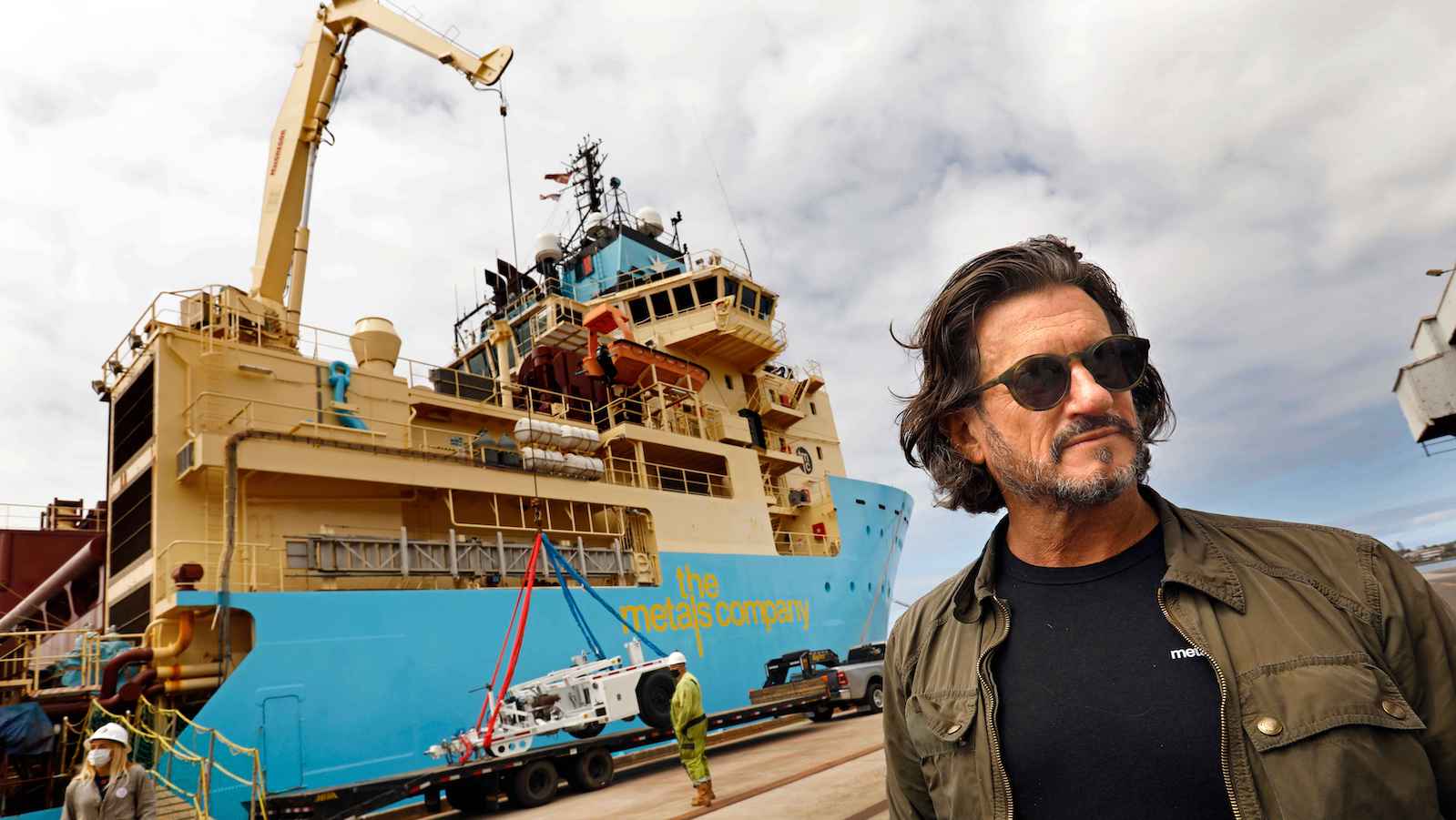
“The Authority is being influenced by a faction of States allied with environmental NGOs who see the deep-sea mining industry as their ‘last green trophy,’” he said, “with the explicit intent of killing commercial industry and leaving the aspirations and rights of developing states that took the initiative to sponsor private companies as roadkill.”
Proponents of deep-sea mining like Barron emphasize that seabed mining would supply cobalt, manganese and other critical minerals to make batteries for electric vehicles and could accelerate the global transition from gas-powered, carbon dioxide-polluting cars to cleaner battery-powered vehicles.
But many scientists and environmentalists have raised strong objections to the industry that would irrevocably strip large swaths of the ocean floor, killing rare sea creatures and removing irreplaceable nodules that took millions of years to form. The environmental opposition that Barron describes comes from an array of groups including Greenpeace, which granted Kahoʻohalahala its official observer status to enable him to participate.
The same players are expected to get involved in the U.S. permitting process, which will require public input and environmental reviews. During the Obama administration, the Center for Biological Diversity sued the National Oceanic Atmospheric Administration for giving a subsidiary of Lockheed Martin exploratory permits for deep-sea mining within the Clarion-Clipperton Zone, a nodule-rich region south of Hawai’i. The first Trump administration reached a confidential settlement with the environmental nonprofit that required the federal government to conduct an environmental impact statement before any of the Lockheed licenses could proceed.
Miyoko Sakashita, an attorney at the Center for Biological Diversity, said the settlement additionally requires NOAA to publish any proposed seabed mining licenses on regulations.gov and give the public the opportunity to weigh in.
Maureen O’Leary, a spokeswoman for NOAA, declined to make anyone at the agency available for an interview or address how recent staffing cuts might affect the permitting process, but confirmed mining applications will undergo a vetting process.
“The process ensures a thorough environmental impact review, interagency consultations and opportunity for public comment,” she said.
Kahoʻohalahala is still grappling with what this new path toward seabed mining will entail, but said he’s worried that it’ll enable mining in close proximity to his home of Hawaiʻi where the industry has been preemptively banned under state law.
The Metals Company’s shift in strategy reflects the success of Kahoʻohalahala and other Indigenous and environmental advocates at the ISA, but it also underscores the commitment by industry players to seek the most expedient path to commercialization. Already, The Metals Company has spent over half a billion dollars on research, and the New York Times reported the company is both low on cash and has a limited ability to borrow. The companyʻs CEO Barron said in his initial public statement that he believes the U.S. would give the company a “fair hearing.”
But opponents of deep-sea mining fear that the company will have outsized sway with the Trump administration, which is reportedly weighing an executive order to fast-track the seabed mining industry and has a longstanding pattern of fast-tracking pipelines and other extractive projects despite environmental concerns.
Thereʻs also the question of what it means for the U.S. to assert control over international waters in defiance of decades-old international law.
“This attempt to bypass international law treads into murky waters,” Sakashita said. “Mining in the sea beyond national boundaries without authorization from the International Seabed Authority should be illegal. Even though the U.S. deep sea mining law purports to have licenses available, it cannot be used as a runaround international law that applies in the high seas.”
While it’s yet unclear what will happen next with NOAA’s deep-sea mining permitting process, Kahoʻohalahala hasn’t paused his advocacy since leaving Jamaica. He flew straight to French Polynesia where he helped urge the president to sign onto a letter opposing deep-sea mining. Now Kahoʻohalahala is preparing to fly to France in June for a U.N. oceans conference to continue to ensure his community’s concerns continue to be taken seriously.
“The timing of this meeting puts it at a really critical time for the ocean,” he said. “We cannot miss this opportunity.”
This story was originally published by Grist with the headline The deep-sea mining industry got tired of waiting for international approval. Enter Trump. on Apr 4, 2025.
This content originally appeared on Grist and was authored by Anita Hofschneider.
This post was originally published on Radio Free.
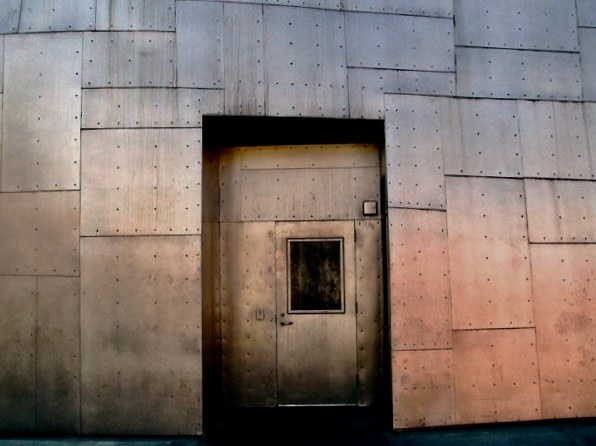






























































Frank Gehry’s Experience Music Project building, Seattle. Photo: Jeffrey St. Clair.
Remorse sleeps during prosperity but awakes bitter consciousness during adversity.
– Jean-Jacques Rousseau, The Confessions
+ Trump and Rubio would have deported Tom Paine for writing seditious pamphlets as a “citizen of the world” and not the US. As it was, Paine died a pariah in the country he did so much to liberate, condemned as a heretic and Jacobin. Only six people attended his funeral in New York City, and the great radical essayist William Cobbett felt compelled to sail over to the States, dig up his bones, and take them back to the UK because the US had betrayed Paine’s vision for the country and its own revolution.
+ If you wanted to know what the US was like under Jim Crow and the Red Scare, you’re getting a glimpse of it right now.
+ Kilmar Abrego Garcia came to the US in 2012 to escape being recruited into a Salvadoran gang that had terrorized his family for more than two years. In 2016, he met his future wife, Jennifer Stefania Vasquez Sura, a US citizen living in Maryland. They eventually moved in together and Kilmar helped raise her two children. They later had a child together. Each of the three kids had some form of disability. Kilmar, according to Jennifer, was an attentive and devoted father to all of the children. He held a steady job, he stayed out of trouble, and then he was busted in 2019 while waiting to apply for a job at Home Depot and accused of being a member of the M-13 gang in Long Island, where he’d never been. During his hearing, Abrega adamantly denied any gang ties. The cops said they arrested him because “he was wearing a Chicago Bulls hat and a hoodie and that a confidential informant advised that he was an active member of MS-13 with the Westerns clique.”
Jennifer Vasquez Sura wrote in a deposition that she was so fearful Kilmar would be deported that she arranged for them to get married while he was in jail: “I coordinated with the detention center and a local pastor to officiate our wedding. We were separated by glass and were not allowed physical contact. The officers had to pass our rings to each other. It was heartbreaking not to be able to hug him.”
Relying on the bogus testimony from a confidential informant, the immigration judge issued a removal order but barred his deportation to El Salvador, agreeing that there was a serious threat to Abrego Garcia’s life if he was returned home. The judge ordered his release and required him to regularly check-ins with ICE, which Abrego Garcia faithfully did.
So things stood until March 12, 2025, when ICE agents stopped Abrego Garcia’s car as he was driving his 5-year-old son home from school. He was cuffed, told his immigration status had been revoked and that he would be deported. The agents took him to a detention center in Baltimore. When Kilmar was finally able to talk with Jennifer on the phone, he told her the ICE agents once again accused him of being a member of M-13, saying bizarrely they’d watched the family frequently visit a certain restaurant and that they had photos of Kilmar playing basketball.
On the morning of March 15, Kilmar called Jennifer again to let her know he’d been transferred to Louisiana. “That call was short and Kilmar’s tone was different,” Jennifer wrote in her deposition. “He was scared. He was told he was being deported to El Salvador. He was told he was being deported to El Salvador to a super-max prison called ‘CECOT.’” Jennifer hasn’t heard from him since.
Then, on Monday of this week, the Trump administration admitted in a court filing that Abrego Garcia had been deported to El Salvador in violation of a court order. By accident, they claimed, the result of an “administrative error:” (Which sounds like the excuse for everything that happened in the last two months.) “On March 15, although ICE was aware of his protection from removal to El Salvador, Abrego Garcia was removed to El Salvador because of an administrative error.” Even so, the Trump administration argued the court had no power to order the return of Kilmar from the custody of the nation that he had fled 13 years ago in fear for his life.
The entire case against Kilmar, dating back to 2019, has the smell of a frame-up. When Kilmar’s lawyers attempted to contact the detective who filled out a form in 2019 accusing him of links to MS-13, they discovered that the police department had no record of his arrest. Even more damning, the detective who filled out the fatal form had been suspended.
Despite the outrageous facts of the case, instead of admitting their grotesque error, the Trump administration went on the offensive, sending JD Vance out to smear Kilmar on FoxNews, where he called him “a convicted MS-13 gang member with no legal right to be here. He had also committed some traffic violations; he had not shown up for some court dates. This is not exactly ‘father of the year’ here.” Trump’s Jesus-worshipping press spokesperson Kathline Leavitt threw even more toxic slime at Kilmar, calling him a “criminal,” a “foreign terrorist,” and a “heinous individual.”
All lies.
Abrega Garcia has no criminal record and his wife and kids miss him and worry about his fate in Naghib Bukele’s lethal dungeon.
+ In 2024, José Gregorio González came to the US from Venezuela to donate a kidney needed to save the life of his brother José Alfred Pacheco, who suffers from late-stage renal failure. But before the operation could take place, González was swept up by an ICE raid in Chicago that a neighbor described as “an ambush.” González’s request for asylum had been denied, but an immigration judge had allowed him to stay in the US for the time being because Venezuela was refusing to accept any deportation flights from the US. González hadn’t any criminal history in the US and wasn’t served with a warrant at the time of his arrest. After public outrage over his detention, Gonzalez was temporarily released until after the operation could take place, at which time he would be deported.
+ The Washington Post explains that this is far from the only case where noncitizen relatives have been deported while caring for relatives with terminal illnesses, though not as terminal as the sickness of the country that is deporting them:
Last month, a child brain cancer patient in Texas and her four siblings — all U.S. citizens — were deported to Mexico along with their undocumented parents who had removal orders as the family was en route to a Houston hospital for her treatment. An undocumented Mexican woman in the Los Angeles area fared better — ICE arrested her in February, but an immigration judge allowed her to post bond as she was the caregiver for an American daughter with bone cancer.
+ According to a report in Pro Publica on deportation flights, “flight attendants received training in how to evacuate passengers but said they weren’t told how to usher out detainees whose hands and legs were bound by shackles.”
+ Here’s a continually updating map tracking the people who have been disappeared by ICE…
+ The Internal Affairs Department for Customs and Border Patrol found that a Chinese woman who Border Patrol had arrested for overstaying her visa hung herself in a cell and was not found for nearly two hours, even though written records noted there had been multiple welfare checks on her. Were the records falsified? Will there be an Internal Affairs Department at CBP next week?

+++
+ CNBC’s Jim Cramer on the eve of Liberation Day, making the right (if obvious) call for once: “I can’t think of a dumber day to buy stocks than today.”
+ Trump’s Liberation Day tariffs…
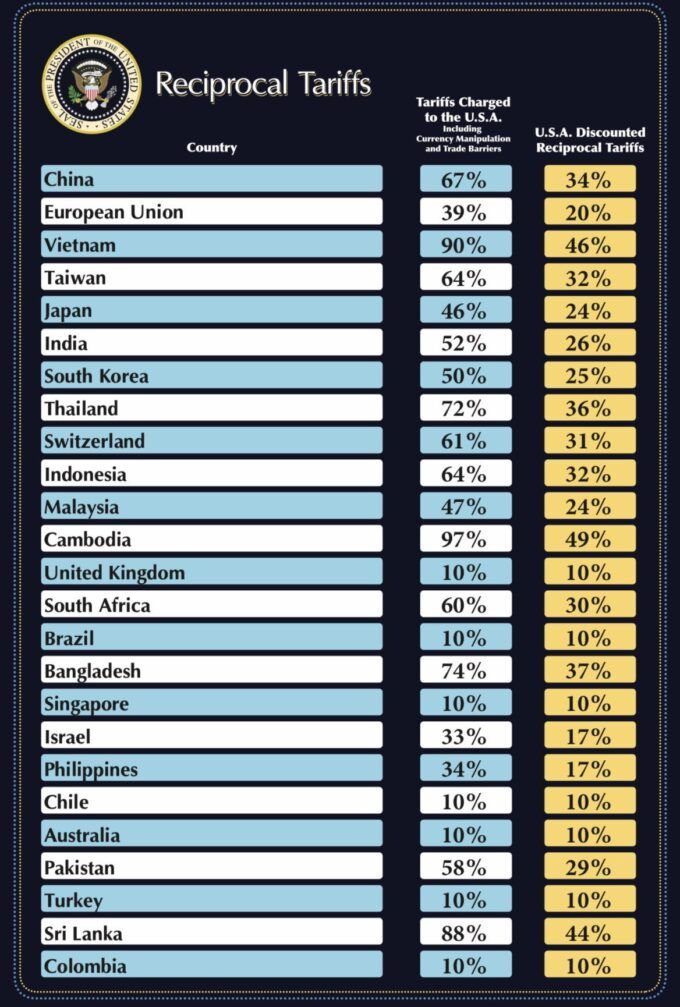
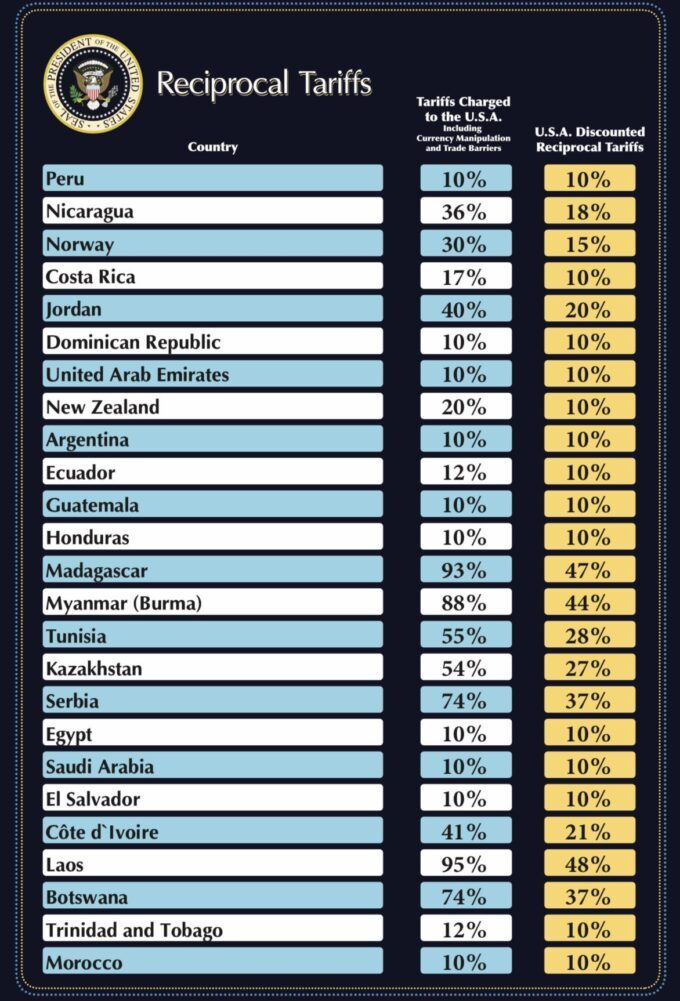
+ James Surowiecki, author The Wisdom of Crowds:
Just figured out where these fake tariff rates come from. They didn’t actually calculate tariff rates + non-tariff barriers, as they say they did. Instead, for every country, they just took our trade deficit with that country and divided it by the country’s exports to us. So, we have a $17.9 billion trade deficit with Indonesia. Its exports to us are $28 billion. $17.9/$28 = 64%, which Trump claims is the tariff rate Indonesia charges us. What extraordinary nonsense this is. It’s also important to understand that the tariff rates that foreign countries are supposedly charging us are just made-up numbers. South Korea, with which we have a trade agreement, is not charging a 50% tariff on U.S. exports. Nor is the EU charging a 39% tariff.”
+ Trump hit the Falkland Islands, a British territory in the Atlantic off the coast of Argentina, with tariffs of 41 percent, 31 percent more than for Britain itself. This is slightly less surreal than the tariffs he slapped on two islands in the Southern Ocean near Antarctica uninhabited by humans. No matter how objectionable they might be to the islands’s avian community of Rockhopper Penguins, Wandering Albatrosses, Storm Petrels, and Subantarctic Skua, the tariffs Trump imposed on Heard and Macdonald Islands may be viewed as a kind of victory for animal rights: “I’m taxed. Therefore, I am.”
+ We go live to the Macdonald Islands for reaction from the local population to the imposition of 20% tariffs by the Trump administration…

+ Mark Carney, Prime Minister of Canada: “The relationship Canada had with the United States is over.”
+ A piece in the Financial Times calculated the expected inflationary impact of Trump’s tariffs and the measures taken in retaliation…
USA: +5.5%
Canada: +2%
Mexico: +0.8%
Netherlands: +0.3%
Belgium: +0.1%
Brazil: 0%
UK: -0,1%
Spain: -0.1%
France: -0.2%
Poland: -0.4%
Germany: -0.4%
South Korea: -0.4%
Italy: -0.4%
Ireland: -0.5%
Japan: -0.6%
India: -0.7%
China: -0.7%
+ I don’t know if this means China and India will emerge as the big winners, but it sure seems clear who the biggest loser is. Over to you, Beck, uh, Beck, you’re up, c’mon, man…
+ There’s broad support across Europe for retaliatory tariffs against the US, with Denmark, not surprisingly, leading the way.
Denmark: 79%
Sweden: 72%
Spain: 70%
Germany: 69%
UK: 71%
France: 68%
Italy: 60%
+ Gold hit a new record high at $3,160 an ounce after Trump’s tariff announcement. Somebody should check his and Elon’s pockets on their way out of Fort Knox.
+ The Nasdaq just experienced its worst-performing quarter since Q2 2022. It was down 11% from January through March.
+ Goldman Sachs said it sees Trump tariffs spiking inflation, stunting growth and raising recession risks.
+ The seven largest single-day Dow Jones point drops in American history
1. Trump, March 16, 2020: -2,997.102. Trump, March 12, 2020: -2,352.603. Trump, March 9, 2020: -2,013.764. Trump, June 11, 2020: -1,861.825. Trump, April 3, 2025: -1,679.396. Trump, March 11, 2020: -1,464.947. Trump, March 18, 2020: -1,338.46
+ The Financial Times should revisit these two financial parasites to see how they feel about their “liberation” after the bloodbath on Wall Street…
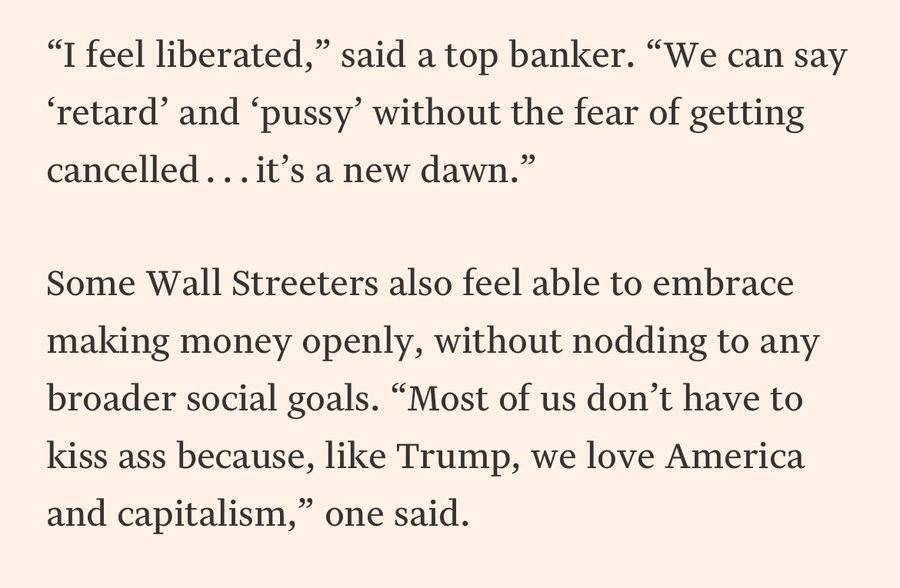
+ Laleh Khalili: “They are probably hedging against the market and making money from the volatility.”
+ As usual, Laleh is correct.
+ Todd Vasos, CEO of Dollar General, said that consumers “only have enough money for basic essentials.” Meanwhile, Bloomberg reports that only 62% of Americans could come up with $2,000 in case of an emergency, the lowest on record,
+ At least 70 percent of retirees in the US reported having credit card debt, an increase of thirty percent from four years ago.
+ A Redfin analysis found that the top one percent of Americans have enough money in the bank to buy 99% of the homes in the US and that the top 0.1% could afford to acquire every single home across the nation’s 25 largest metro areas, from San Antonio to New York City.
+ According to Gallup, at least 81% of Americans view foreign trade as an opportunity for economic growth, jumping 20 percentage points since last year. Those seeing it as more of a threat to the U.S. economy have fallen by half, down to 14%.
+ OK, I know what you’re thinking: Bill Kristol is almost always wrong about everything, but perhaps not about this thing…?
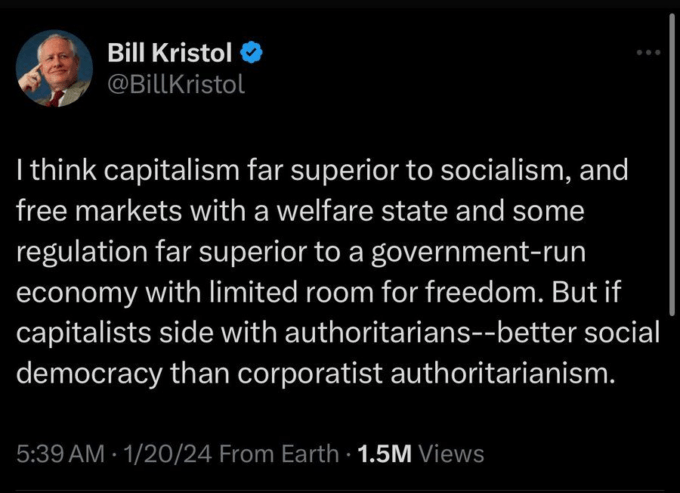
+ Kristol now occupies a position to the Left of 93% of the elected Democrats on Capitol Hill.
+++
+ In his new book on the 2024 election, Uncharted: How Trump Beat Biden, Harris and the Odds in the Wildest Campaign in History, Chris Whipple gets Ron Klain, Biden’s former chief of staff, to paint Biden as physically spent, mentally confused and out of touch throughout the campaign, and at one point seemed to believe himself to be the head of NATO instead of the US.
+ Here’s Whipple’s account of the preparation for Biden’s debate with Trump:
At his first meeting with Biden in Aspen Lodge, the president’s cabin, Klain was startled. He’d never seen him so exhausted and out of it. Biden was unaware of what was happening in his own campaign. Halfway through the session, the president excused himself and went off to sit by the pool.
That evening Biden met again with Klain and his team, [Biden aides] Mike Donilon, Steve Richetti, and Bruce Reed. ‘We sat around the table,’ said Klain. ‘[Biden] had answers on cards, and he was just extremely exhausted. And I was struck by how out of touch with American politics he was. He was just very, very focused on his interactions with NATO leaders.’
Klain wondered half-seriously if Biden thought he was president of NATO instead of the US. ‘He just became very enraptured with being the head of Nato,’ he said. That wouldn’t help him on Capitol Hill because, as Klain noted, ‘domestic political leaders don’t really care what [Emmanuel] Macron and [Olaf] Scholz think.’
…
25 minutes into the second mock debate, the president was done for the day. ‘I’m just too tired to continue and I’m afraid of losing my voice here and I feel bad,’ he said. ‘I just need some sleep. I’ll be fine tomorrow.’ He went off to bed.
The president was fatigued, befuddled, and disengaged. Klain feared the debate with Trump would be a nationally televised disaster.
+ Musk spent millions in an attempt to buy the Wisconsin Supreme Court race. He lost badly and Susan Crawford ended up not only defeating her Musk-financed opponent but trouncing Kamala Harris’ 2024 numbers across every political kind of county in the state:
Counties Harris Won by More Than 15 Points
Harris 70%
Crawford 77%Counties Harris Won by More 5- 15 Points
Harris: 53%
Crawford: 62%Counties Harris Won Within 5 Points
Harris: 48%
Crawford: 56%Counties Trump Won by 5-15 Points
Harris 46%
Crawford 52%Counties Trump Won by More than 15 Points
Harris: 38%
Crawford: 43%
+ In the 34 special Congressional elections during the Trump era, the Democrats’ 22-point over-performance in Florida’s 1st district is their best yet, and their 16-point over-performance in the 6th District of Florida was tied for 6th-best. Still, they lost both elections.
+ Trump on Andrew Cuomo and the NYC mayoral race: “I’ve always gotten along with him.” Of course, he has.
+++
+ The Trump administration is seeking to reduce the amount of congressional oversight of weapons exports, assuming there’s any oversight at all, after the Biden year. The plan is to increase to $23 million from $14 million for arms transfers and rise to $83 million from $50 million for the sale of military equipment, upgrades, training, and other services.
+ One of the schemes Trump is exploring to annex Greenland involves the US somehow paying Greenlanders more than the $600 million a year subsidy that Denmark pays. “This is a lot higher than that,” a Trump official told the Washington Post. “The point is, ‘We’ll pay you more than Denmark does.’”
+ The Washington Post on the lax security of Trump’s National Security team: “Members of President Donald Trump’s National Security Council, including White House national security adviser Michael Waltz, have conducted government business over personal Gmail accounts. The use of Gmail, a far less secure method of communication than the encrypted messaging app Signal, is the latest example of questionable data security practices by top national security officials already under fire for the mistaken inclusion of a journalist in a group chat about high-level planning for military operations in Yemen.”
+ Here’s some economic news to celebrate: Shares of Nike Sweatshops, Inc. are down 12% post-Liberation Day and down 28% in the last month!
+ Following Trump’s after-hours tariff announcement, the price of gold shot up to $3,200 an ounce, the highest in history. Somebody better pat down the pockets of Trump and Musk on their way out of Fort Knox…
+ According to Barchart, the top one percent of US earners have now amassed more wealth than the entire American middle class combined.
+ Pro Publica: Last year, venture capitalist Marc Andreessen went on Joe Rogan’s podcast and accused the Consumer Fin Protection Bureau of terrorizing tech firms. It turns out a firm he backed—Greenlight, a debit card company for kids!—was being investigated by the CFPB for not allowing kids to immediately access funds.
+++
+ The Washington Post on the mass firings at HHS: “Some government health employees laid off Tuesday were told to contact Anita Pinder with discrimination complaints. But Pinder, the director at the Office of Equal Opportunity and Civil Rights at Centers for Medicare and Medicaid Services, died last year.”
+ CNN’s Kayla Tausch: “At the HHS building in Rockville, employees describe learning they were laid off when their badge doesn’t work – and then having to do a “walk of shame” by others in line. “Could they have picked another day other than April Fool’s Day?” one tells me.”

Screengrab from X of workers being turned away from the HHS building in Rockville, Maryland.
+ Carol Miller, public health nurse, El Partido Verde activist, and CP contributor: “I worked in that building for two years and with programs based in that building for decades. This is the location of the Public Health Service providing nearly all the government programs for the people; Indian Health Service, Community Health Centers (care for more than 30 million people a year), Maternal and Child Health, National Health Service Corps (places health care providers in communities), Office of Rural Health, HIV/AIDS, and others.”
It’s quite a price the country’s going to pay for the kicks some people get out of “owning the libs.”

WIRED: “A senior scientist at NIH tells WIRED the impact of Tuesday’s layoffs was sheer “chaos,” with the firings of the lead investigators projected to widely impair and impede diverse ongoing research ranging from mechanisms within cells in the brain to human patients with neurologic conditions.”
+++
+ A Gallup survey reports that nearly every American uses products that involve artificial intelligence (AI) features, but two-thirds (64%) don’t realize it.
+ This kind of ignorance makes it that much easier for people like Sam Altman and Elon Mush who want to replace workers and, eventually, humans themselves with AI and robotics.
+ Welcome to the machine…
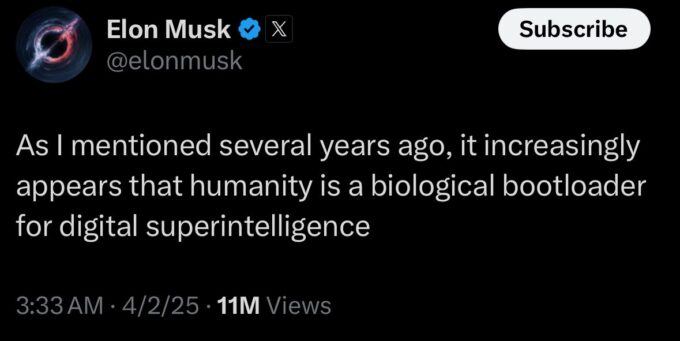
+ A couple of Sundays ago, Saahil Desai, an editor at The Atlantic, drove a Tesla Cybertruck around Washington, DC and was given the finger at least 17 times.
+ The Tesla board’s response to the Take Tesla Down campaign to a move to Take Musk Down From Tesla…
+ Just 45% of tech workers got a raise last year, according to the job site Dice–that’s a decline of 10 percent from 55 percent of tech workers who got raises in 2023.
+ A movement of Jah people…

+++
+ Trump has succeeded in convincing more Republicans (and quite a few Democrats) than ever before that Canada and the EU are no longer allies of the US but “enemies.” According to a piece in The Economist, nearly 25% of Republicans (and 7% of Democrats) now view Canada as an “enemy” nation, compared to 3% of Republicans and Democrats in 2016. Meanwhile, close to 30% of Republicans (and 5% of Democrats) now see the EU as an “enemy”, up from 17% of Republicans and 3% of Democrats last year.
+ The Economist: “Trump repeatedly claims that the European Union was ‘formed in order to screw the United States.’ Canada, America’s northern neighbor and second-largest trading partner, is “one of the nastiest countries.” Russia was “doing what anyone would do” when it bombed Ukraine’s energy infrastructure during a pause in American intelligence sharing.”
+ No country in Europe currently holds a positive view of the US…
Denmark: 10%
Sweden: 28%
Germany: 30%
France: 32%
+ The genius of French provincial cooking is its ability to make the best food out of whatever’s available, including the worst cuts of beef, offal even…But the French would never raise their cattle in industrial feedlots where the animals stand nearly motionless in their own piss and shit for a year, shot up with hormones…
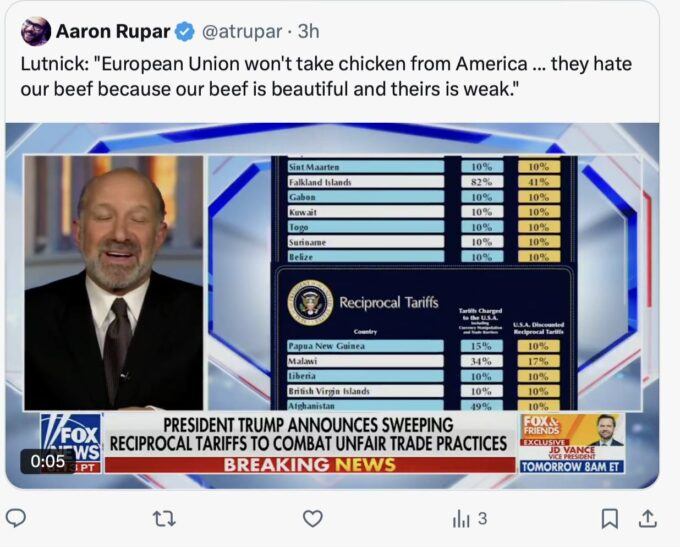
+ Benedicte de Perthuis, the French judge who ruled French neo-fascist Marine Le Pen ineligible for the 2027 elections after her conviction on embezzlement charges, is now under police protection following a wave of death threats and online doxxing.
+ Finnish President Alexander Stubb, after golfing with Trump: “The half-ceasefire has been broken by Russia, and I think America and my sense is also the president of the United States, is running out of patience with Russia.”
+ The construction of private bunkers in Spain has increased by 200%, as fears of a European war spread.
+ It took Nixon to go to China and Trump to unite three longtime enemies–China, Japan and South Korea–against the US. Bravo, genius!

+ There’s been what’s described as a “bloodbath” of firings at Trump’s National Security Council. But not over the fallout from Trump’s National Security Advisor Mike Waltz’s security breaches. Instead, the dismissals seem to be at the behest of the conspiracy-mongering Trump intimate Laura Loomer, who met with Trump in the Oval Office earlier in the week and presented the president with her “research” that several members of Waltz’s staff were “neocons” who had slipped through the vetting process.
+ Jeet Heer: “I’m sorry, but an administration where people get fired because Laura Loomer doesn’t like them is not going to be a stable government.”
+ Hypocrisy, arrogance and ineptitude are virtues in this administration not fireable offenses…”Members of Trump’s National Security Council, including national security adviser Michael Waltz, have conducted government business over personal Gmail accounts, according to documents reviewed by The Washington Post and interviews with three U.S. officials.”
+ Mike Waltz may unwittingly become the Daniel Ellsberg of the Trump administration. Politico reported this week that Waltz had set up at least 20 Signal chat groups to “respond to crises across the world”…many of them he and Trump provoked, presumably.
+ Last week, Deputy Attorney General Todd Blanche sent a memo to his staff describing how the DOJ is, in the spirit of DOGE, considering closing the Antitrust Division’s field offices in San Francisco and Chicago…”In the spirit of DOGE”… i.e., “At the behest of our Tech Overlords.”
+ Here’s a more critical “leak” than the one to Goldberg…

(The pervasive episodes of parapraxis among the leaders of the GOP may end up being what saves the country from complete and utter ruin…)
+ David French, who’s about as far to the right as you could have gotten, pre-MAGA: “In some parts of American Christianity, the theology is so flawed, and the culture is so broken, that evangelicals don’t see Trump contradicting their values at all — he’s exactly like the men and women who lead their church.”
+ On St. Patrick’s Day, Trump invited fellow convict, MMA fighter and failed boxer Conor MacGregor to the White House to promote his “Make Ireland Great Again” campaign for president. It wasn’t received well by the Irish…
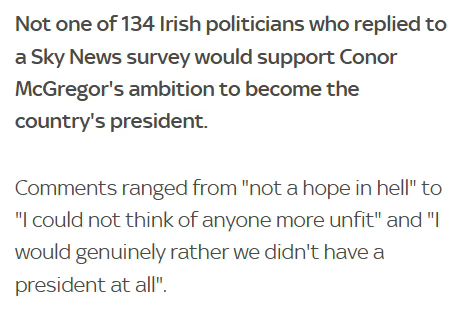
+++
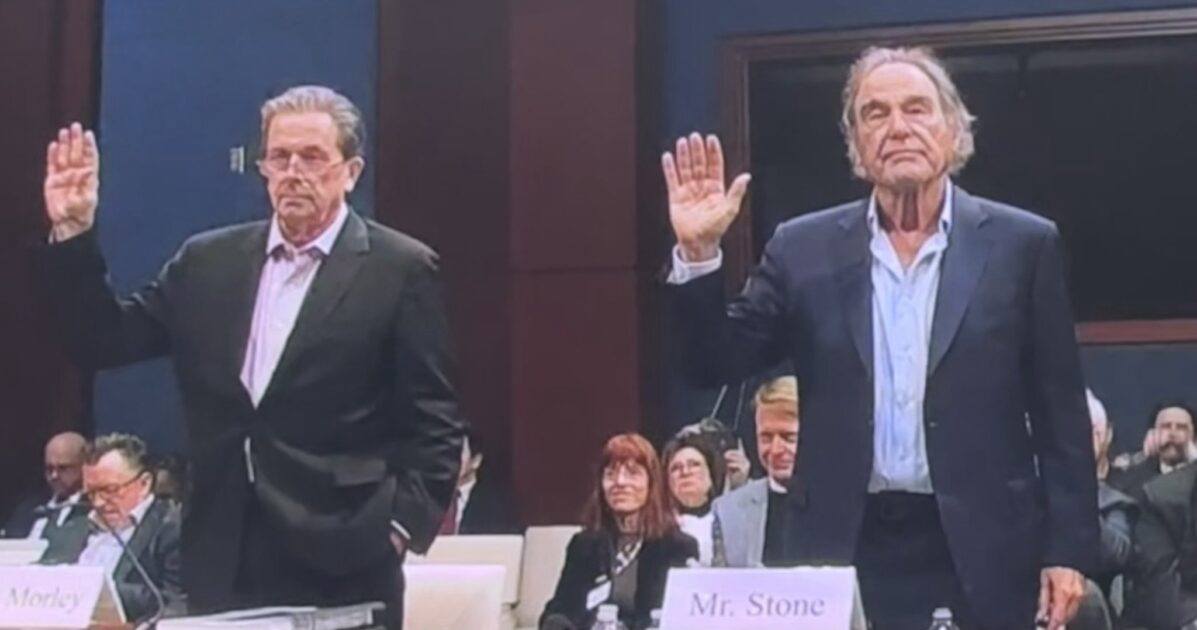
Jefferson Morley and Oliver Stone at House hearing on JFK assassination.
+ If I was this stupid, I wouldn’t want to broadcast it during live coverage of Congressional hearings on JFK’s assassination…
Lauren Boebert: Mr. Stone, you wrote a book accusing LBJ of being involved in the killing of President Kennedy. Do these recent releases confirm or negate your initial charge?
Oliver Stone looking befuddled by the question, whispers in the ear of [my] former Washington Post editor and JFK assassination expert, Jefferson Morley.
Stone: No, I didn’t.
Boebert: Yes, sir you did…

Stone: “If you look closely at the FILM, it accuses President Johnson…”
Boerbert, excited to the point of giddiness now that she’s finally stumbled on to something profound: “Ok, ok…”
Stone: “Of being part of and complicit in a cover-up of the case. But not in the assassination itself, which I don’t know.”
Boerert, a little unsteady now: “What do you think he was complicit with?”
Stone: The cover-up. How about, for starters, appointing Allen Dulles, the head of the CIA who was fired by Kennedy, to the Commission itself, the Warren Commission. And he goes to almost every meeting, and is pretty much in charge of the Warren Commission from the beginning. Allen Dulles, that’s part of the evidence that pointed to President Johnson, as either incompetent or involved.
Boebert, adjusting her Sarah Palin “sexy librarian” glasses: “Mr. Morley, I think you had something to add to that?

Morely: “I think you’re confusing…
Boebert: “I may have mis—
Morley: “ROGER STONE with Oliver Stone. It’s Roger Stone who implicated LBJ in the assassination of the president. Not my friend Oliver Stone.”
Boebert: “I may have misinterpreted that.”
+ Rutgers, which has an endowment of more than $2 billion and pays the coach of its mediocre football team $6.5 million a year, is shuttering Raritan, one of the best remaining literary magazines, as part of the University’s “Austerity Agenda.” Raritan’s excellent editor, Jackson Lears, explains…
+ Nick Estes: “Yesterday [Monday], the U of Minnesota deleted the American Indian Studies’ statement on Palestine. (Also deleted was a story about Leonard Peltier’s return home and five other dept statements on Palestine.)” Here’s the now-elided original statement, as preserved by the Wayback Machine…
+ And now we take you live to the Oval Office…

+ Frank Zappa: “Some scientists claim that hydrogen because it is so plentiful, is the basic building block of the universe. I dispute that. I say there is more stupidity than hydrogen, and that is the basic building block of the universe.”
+ Here’s Neil Young, writing on his Times Contrarian blog about what it’s like to be a Canadian artist living in the states now:
What’s happening in our America right now: Our rights to free speech are being taken away and buried by our government.
Reporters who do not agree with our government have been banned from interviewing our President. Canadian / Americans like me have had their freedom threatened by activities such as taking private info from their devices and using it to block them from entering our country – ie: If you don’t agree with our government, you are barred from entering or sent to jail. There are many stories in the Contrarian that make this information very clear.
Corporate controlled newspapers and TV are mostly bought and paid for now, to a great degree. The information found there is not complete anymore. Thats why you need to read the Contrarian. Articles published here are not controlled by Corporations, they are supported by the public – you.
Just because you love music, don’t allow your children to lose their freedom. Read here and learn what our government is doing to you. That’s right – our government.
Music is my love and my life. I want that for my children and theirs. That’s why I’m here doing this today instead of just selling you records.
There is plenty of music associated news in The Times Contrarian and you can easily find it here. Choose the Music News section or the World News section at the top of the page. Check out your music and the rest too. Don’t let your knowledge be limited by today’s politics and the controlling Trump agenda that challenges your basic American freedoms. You elected this president. He is your President. Elon Musk? Really? Think about it. He is a threat to America, enabled by our president because of the millions he spent supporting our president’s election.
All Their Ammunition, All Their Money Lost, All Their Bold Invasions, All Their Running Dogs…
Booked Up
What I’m reading this week…
Homeland: the War on Terror in American Life
Richard Beck
(Verso)
The Class Struggle and Welfare: Social Policy Under Capitalism
David Matthews
(Monthly Review)
On Book Banning: or How the New Censorship Consensus Trivializes Art and Undermines Democracy
Ira Wells
(Biblioasis)
Sound Grammar
What I’m listening to this week…
That’s the Price of Loving Me
Dean Wareham
(Car Park)
Letters From the Atlantic
Butcher Brown
(Concord Jazz)
After the Last Sky
Anouar Brahem
(ECM)
Those Who Cannot Dance
“Dance is the universal art, the common joy of expression. Those who cannot dance are imprisoned in their own ego and cannot live well with other people and the world. They have lost the tune of life. They only live in cold thinking. Their feelings are deeply repressed while they attach themselves forlornly to the earth.” – Ishmael Reed, Mumbo Jumbo
The post Roaming Charges: Welcome to the Machine appeared first on CounterPunch.org.
This content originally appeared on CounterPunch.org and was authored by Jeffrey St. Clair.
This post was originally published on Radio Free.

Photograph Source: Ministry of Defense of Ukraine – CC BY-SA 2.0
In a practice that might seem quaint if it weren’t so murderous, the American uniparty is currently assigning party colors to its ‘boutique’ wars in Ukraine and West Asia. While these wars were arguably started by, and are being prosecuted by, the United States, the powers that be in the US have apparently determined that branding them by team color (Red v Blue) would effectively preclude the development of a national anti-war response.
In this light, the (New York) Times recently shat out the second installment of its ex-post recitation of CIA talking points crafted with a method that I call ‘cat-litter journalism.’ The focus of the new Times’ piece is the American war in Ukraine. Should this read as a misstatement to you, that maybe it is a war between Ukraine and Russia, tell it to the New York Times. The gist of the Times piece is that the Americans would have won the war if it hadn’t been for the Ukrainians.
The phrase ‘cat-litter journalism’ refers to the near-random assemblage of earlier reporting by the Times that has been reassembled to convey the illusion that its ‘reporting’ ties to any determinable facts. Deference to authority is another way to describe the piece. Without footnotes and / or links, the assertions made in the piece are a compilation of the least plausible state propaganda of recent years crafted for the post-election political dynamic.
‘In some ways, Ukraine was, on a wider canvas, a rematch in a long history of U.S.-Russia proxy wars — Vietnam in the 1960s, Afghanistan in the 1980s, Syria three decades later.’ nytimes.com’ 3/29/25.
For readers upset by the prospect of their favorite war losing its luster, fear not. The political logic of Donald Trump’s rapid policy dump upon entering office is the ethereal nature of Presidential power. For good and not-good reasons, Mr. Trump is about to hit a wall of institutional pushback. Further, his ‘peace through strength’ schtick (borrowed from Richard Nixon) is a serious misreading of the current political environment.
The reason why New York Times reporters are acting like rats fleeing a sinking ship with respect to the CIA’s war in Ukraine is that the Ukraine ship is sinking. Don’t take my word for it. The new US Intelligence Assessment for 2025 states 1) that Ukraine (the CIA) has substantially lost the conflict, and 2) nothing that the West has at its disposal will turn the situation around. Having a chair to sit in when the music stops is the political needle being threaded.
Russia in the past year has seized the upper hand in its full-scale invasion of Ukraine and is on a path to accrue greater leverage to press Kyiv and its Western backers to negotiate an end to the war that grants Moscow concessions it seeks. dni.gov.
The political logic of parsing the war in Ukraine from the genocide in West Asia goes like this, 1) by US calculations, there is no way for the West to prevail in Ukraine, and 2) attending to the denouement in Ukraine when a promise of genocide has been sold to a foreign adversary (Israel) requires operational consolidation. Once the US moves outside of Gaza (it already has), Greater Israel begins to resemble Poland on August 31, 1939.
For those who may have forgotten, here is the leader of the Blue Team telling us that ‘Putin has already lost the war’ in mid-2023. Two years later, the New York Times is belatedly informing us that it was the Ukrainians who lost the war; that the US is blameless, if not heroic, for its ‘support’ of Ukraine; and that maybe the US should have gotten one-million citizens of a more deserving nation killed for the privilege.
That British ‘intelligence,’ MI6, was active in both the Russiagate fraud and in maintaining friendly relations with Ukrainian fascists from 1944 to the present so that they were available for service in Ukraine 2013 – present, argues for ending the Five-Eyes Alliance and criminally charging the Brits for interfering in American elections. The problem is that the Western ruling class has demonstrated itself to be immune from public sanction.
That the leader of the Blue Team was the largest recipient of legal bribes from supporters of Israel in Congress unites him in a deep moral commitment to genocide with Donald J. However, in the American terms of discourse in 2025, Donald Trump ‘got the better deal.’ Miriam Adelson contributed $150 million to Mr. Trump’s 2024 campaign, with $100 million of it reportedly dedicated to improving the lives of Western arms dealers. Joe Biden only got four million dollars for his genocide.
This ‘genocide for hire’ posture of America 2.0, where US foreign policy does the bidding of foreign adversaries in exchange for specific payments to specific politicians, might seem irredeemably corrupt. In fact, it is irredeemably corrupt. However, there is a political term— ‘imperialism,’ that rehabilitates corrupt acts under the nuevo-scriptural precept of ‘kick their ass and steal their gas’ that is emerging from the gold toilet crowd.
Were it not for the earlier ‘coming-clean’ piece from the Times that began in the aftermath of the US – British coup in Ukraine in 2014, the US timeline found in the recent Times article would be inexplicable. How could the timelines match US state propaganda so perfectly given that between the two articles, pretty much everything that the Americans and Brits said about the conflict was later restated in materially different terms?
Further, as the vile, offensive, and yes, fascistic, efforts by the Trump administration to quell domestic rebellion against corrupt acts by politicians taking money from adversarial foreign governments to commit genocide, the ship of state is struggling. Threatening Americans with deportation, imprisonment, and being disappeared for expressing their constitutionally protected right to object to these policies is profoundly anti-American under the existing terms of discourse.
Ominously for we, the people, Donald Trump was able to extract far more money than Joe Biden was for a roughly equivalent genocide (thus far). Yes, under US law, American politicians can take money from adversarial foreign governments which personally benefits them, and not the United States, in exchange for the promise that the US will commit genocide against foreign nationals for the benefit of other foreign nationals. Question: where is MAGA on this?
If any of this suggests a path out of the current mess through electoral politics, the evidence doesn’t support that conclusion. Here is one of the several pieces that I wrote in and around early 2019 where I correctly argued that were Joe Biden to be elected, he would fail to govern and that Donald Trump, or someone worse, would follow Biden. That is what happened. I was right, and the DNC just reelected Donald Trump.
For those who don’t see it yet, Donald Trump is in the process of imploding politically. His economic policies, which share quite a bit with Bill Clinton, Barack Obama, and Ronald Reagan, are ideological— based on a group of like-minded people sitting around making shit up with no one to challenge them. He doesn’t understand basic economics well enough to avoid the catastrophe-in-the-making that his policies will produce.
Firing tens of thousands of Federal workers without a coherent plan to reemploy them both raises the unemployment rate and lowers wages. As I’ve previously written, adding former Federal employees to the unemployment line increases the number of workers vying for a limited number of jobs, thereby leading the most desperate to accept lower wages. Rising unemployment and falling wages is a recipe for electoral defeat.
With respect to liberal fears of a Fourth Reich, ex-CIA Larry Johnson and others familiar with military production argue that the lead time from cold start to having weapons in hand is a decade. When existing facilities can be used, this lead time can be reduced to three years. In its wisdom, the US began firing its skilled manufacturing workforce in the 1970s. Skilled work in 2025 is ‘influencing’ teenagers to buy Viagra for their pet gerbils on YouTube.
When Mr. Trump references ‘peace through strength,’ he asserts that while his aim (‘peace’) is virtuous, his method will be the threatened or actual use of violence to achieve it. The social logic is that the party being threatened has a choice to surrender or be killed. This framing has been used by repressive power for millennia to claim that political repression maintained through violence is ‘peace.’ In so doing, the term is emptied of content. The definition of peace is reduced to ‘not death.’
The political benefit of this approach for empires is that it frames repressive political power as a defense of peace, and its opponents as the instigators of violence. In history, the US is only two generations from the ‘Indian Wars,’ where innocent settlers ‘were overwhelmed and slaughtered by ignorant savages,’ for those who buy Hollywood’s version of the history. Howard Zinn’s A People’s History of the United States and Robert Hughes’ The Fatal Shore illustrate the genocidal versions of this view-from-power of ‘peace.’
How the phrase (peace through strength) was heard on the campaign trail by Mr. Trump’s constituents was likely through the anti-historical fantasy that the US has won the wars that it has engaged in since WWII. As actual history has it, it was the Russians who won WWII. Richard Nixon used the term, combined with his claim that he had a ‘secret plan’ to end the US war in Vietnam. He didn’t. Nixon ended up expanding the war to Laos and Cambodia before the ignominious ‘fall of Saigon’ in 1975.
With respect to the US proxy war in Ukraine, the precise social logic of Mr. Trump implying that the Biden administration was ‘weak’ in threatening imminent nuclear annihilation in the latter days of the administration begs the question of what the word means? Is ending the world a sign of strength? To whom? Who would be alive to judge the matter, and what would be the consequence of any such judgment?
One might have imagined that Times readers previously burned by its fraudulent reporting regarding Iraq’s WMDs and Russiagate would have felt ‘twice bitten, thrice shy’ with respect to its Ukraine reporting. Implied in the steadfastness of its readership is that getting true information about the world isn’t— is not, why its readers read the Times. Or perhaps, Times readers like their news several years after the fact, when it can be found in the ‘corrections’ section.
The residual purpose of the New York Times is to demonstrate that Pravda in the waning days of the Soviet Union is the model to which the American press aspires. But this is only a ‘press’ story to the extent that the volunteer state media in the US doesn’t require threats to carry water for power. They want to do so. It gives them purpose, and the occasional invitation to the right dinner party.
I wrote early on in the US war in Ukraine that the Ukrainians ‘would rue the day that they ever heard of the United States.’ With the New York Times now blaming the Ukrainians for the American loss against Russia, they join the Palestinians in being tossed onto the garbage heap of empire. So are the Russians. The difference is that the Russians can take care of themselves. That is why American imperialists hate Russia so much. They don’t control it.
The post New York Times Throws Ukraine Under the Bus, Admits US Proxy War appeared first on CounterPunch.org.
This content originally appeared on CounterPunch.org and was authored by Rob Urie.
This content originally appeared on Laura Flanders & Friends and was authored by Laura Flanders & Friends.
This post was originally published on Radio Free.
This content originally appeared on Radio Free Asia and was authored by Radio Free Asia.
This post was originally published on Radio Free.
This content originally appeared on Radio Free Asia and was authored by Radio Free Asia.
This post was originally published on Radio Free.
Comprehensive coverage of the day’s news with a focus on war and peace; social, environmental and economic justice.
The post The Pacifica Evening News, Weekdays – April 3, 2025 appeared first on KPFA.
This content originally appeared on KPFA – The Pacifica Evening News, Weekdays and was authored by KPFA.
This post was originally published on Radio Free.
This content originally appeared on Democracy Now! and was authored by Democracy Now!.
This post was originally published on Radio Free.
This content originally appeared on Democracy Now! and was authored by Democracy Now!.
This post was originally published on Radio Free.
From the start of President Donald Trump’s second term, Brendan Carr, chair and senior Republican member of the Federal Communications Commission, has joined Trump in taking steps to punish and intimidate news outlets that have covered him and his administration unfavorably. We’re documenting Carr’s efforts in this regularly updated report.
Read about how Trump’s appointees and allies in Congress are striving to chill reporting, revoke funding, censor critical coverage and more here.
This article was first published on Jan. 22, 2025.
March 27, 2025 | FCC opens investigation into ABC, Disney over DEI policy
Feb. 11, 2025 | FCC opens investigation into NBC parent over DEI program
Feb. 5, 2025 | FCC opens investigation into California radio station
Jan. 22, 2025 | FCC chair reinstates complaints against three news outlets
Federal Communications Commission Chair Brendan Carr, in a March 27, 2025, letter to ABC and its parent Disney, said the agency had launched an investigation into the company’s promotion of diversity, equity and inclusion programs.
“Numerous reports indicate that Disney’s leadership went all in on invidious forms of DEI discrimination a few years ago and apparently did so in a manner that infected many aspects of your company’s decisions,” Carr wrote.
While Disney scaled back its diversity efforts in November 2024, Carr indicated that the changes may not have gone far enough. “I want to ensure that Disney ends any and all discriminatory initiatives in substance, not just name,” he added.
Carr specified that the probe will apply to both past and current policies.
President Donald Trump has made eliminating DEI programs a pillar of his second term, signing a Jan. 22 executive order eliminating them in the federal government and pressuring private companies to follow suit.
A Disney spokesperson told Reuters, “We are reviewing the Federal Communications Commission’s letter, and we look forward to engaging with the commission to answer its questions.”
In an interview with Fox News on March 31, Carr suggested that the broadcaster’s license could be at risk, The Hill reported.
“If the evidence does in fact play out and shows that they were engaged in race- and gender-based discrimination, that’s a very serious issue at the FCC, that could fundamentally go to their character qualifications to even hold a license,” Carr said.
ABC News is also facing an FCC investigation into how the broadcaster moderated the debate between Trump and former President Joe Biden, which Carr reopened in January.
Federal Communications Commission Chair Brendan Carr, in a Feb. 11, 2025, letter to NBC News parent Comcast, said the agency would launch an investigation into the company’s promotion of diversity, equity and inclusion programs.
“The FCC will be taking fresh action to ensure that every entity the FCC regulates complies with the civil rights protections enshrined in the Communications Act,” Carr’s letter read, “including by shutting down any programs that promote invidious forms of DEI discrimination.”
President Donald Trump has made eliminating DEI programs a pillar of his second term, signing an executive order eliminating such programs in the federal government on Jan. 22 and pressuring private companies to follow suit. PBS News told employees on Feb. 11 that it was eliminating its DEI office to be in compliance with the administration’s policy.
Tom Wheeler, a former chair of the FCC, told The New York Times that this latest investigation fits a pattern of Carr using the commission’s authority to advance Trump’s political aims.
“It’s clear that what is going on here is — whether it be Comcast and DEI or NPR and PBS, or CBS and the ‘60 Minutes’ interview — is how can you use the coercive authority of regulation to accomplish the goals of your master and mentor, Donald Trump?” Wheeler said.
Federal Communications Commission Chair Brendan Carr launched an investigation into San Francisco, California, radio station KCBS on Feb. 5, 2025, after the station broadcast the locations of Immigration and Customs Enforcement agents during operations in the San Jose area, Fox News reported.
Carr told Fox that he believes KCBS may have violated licensing rules requiring broadcasters to operate in the “public interest.”
Carr had previously opposed the transfer of the station’s license, following Republican scrutiny of the ownership role of billionaire investor George Soros, a Democratic megadonor whose nonprofit now controls the broadcasting outlet.
Federal Communications Commission Chair Brendan Carr informed public broadcasters NPR and PBS on Jan. 29, 2025, that he had initiated an investigation into the news outlets, suggesting that they may have violated federal law by airing commercial advertisements. A copy of the letter was also shared with members of Congress, Carr wrote, because of its potential relevance to ongoing debates.
“In particular, Congress is actively considering whether to stop requiring taxpayers to subsidize NPR and PBS programming,” the letter read. “For my own part, I do not see a reason why Congress should continue sending taxpayer dollars to NPR and PBS given the changes in the media marketplace since the passage of the Public Broadcasting Act of 1967.”
That same day, the FCC sent a letter of inquiry to CBS News demanding that the outlet turn over the “full, unedited transcript and camera feeds” from a Kamala Harris interview on “60 Minutes” in October 2024, according to a statement published by the broadcaster.
CBS said that it was working to comply with the inquiry, “as we are legally compelled to do.” The U.S. Press Freedom Tracker was unable to obtain a copy of the inquiry as of press time.
A spokesperson for CBS told Reuters that the news organization submitted the documents to the FCC on Feb. 3. In an interview with Fox News, Carr said he was “open minded as to potential consequences” and that he would consider releasing the transcript in the interest of transparency.
CBS published the transcripts and video that it turned over to Carr on Feb. 5. “They show — consistent with 60 Minutes’ repeated assurances to the public — that the 60 Minutes broadcast was not doctored or deceitful,” the outlet wrote.
The Harris interview was the focus of a federal lawsuit filed against CBS on behalf of President Donald Trump, which alleged the network had “doctored” the broadcast in an attempt to influence the presidential election. Trump had demanded the network release unedited tapes and transcripts. CBS has maintained the claims are false and the suit without merit.
Brendan Carr, a Donald Trump appointee and the new chair of the Federal Communications Commission, reinstated complaints against multiple outlets that Trump targeted leading up to and in the wake of the election, alleging their reporting was biased and aimed at swaying favor toward his opponent.
NPR reported that, shortly before leaving office, then-FCC Chair Jessica Rosenworcel dismissed complaints about appearances by Kamala Harris on CBS’ “60 Minutes” and NBC’s “Saturday Night Live,” and about how ABC News moderated the debate between Trump and former President Joe Biden.
“We don’t have the luxury of doing anything other than making very, very clear that this agency and its licensing authority should not be weaponized in a way that is fundamentally at odds with the First Amendment,” Rosenworcel said. “This agency should not be the president’s speech police and this agency shouldn’t be journalism’s censor-in-chief.”
Rosenworcel also dismissed a complaint against a Philadelphia Fox station for allegedly promoting lies about election fraud in the 2020 election.
Carr took over as FCC chair on Jan. 20, and reinstated the complaints against ABC, CBS and NBC two days later. In a statement, the agency said that the complaints had been dismissed “prematurely based on an insufficient investigatory record,” according to The Guardian.
Carr had previously demonstrated his willingness to target news outlets based on alleged bias, and he has supported Trump’s calls for NBC, CBS and ABC to lose their broadcast licenses over their alleged mistreatment of him, NPR reported.
This content originally appeared on U.S. Press Freedom Tracker: Incident Database and was authored by U.S. Press Freedom Tracker: Incident Database.

On March 18 Israel broke the Gaza ceasefire and recommenced its full scale assault, siege, and bombing of Gaza. Since then, over 1,000 Palestinians have been killed and the humanitarian situation is as desperate as ever. Watching mainstream media, however, one would hardly notice.
While US media outlets continue to report below the fold on the daily airstrikes, they are no longer treated as major stories meriting emphasis and urgency. This is especially true for the New York Times and TV broadcast news, which have all but forgotten there’s an unprecedented humanitarian crisis ongoing in Gaza–still funded and armed by the US government.
The paper of record, the New York Times, ran a front page story March 19, the day after Israel broke the ceasefire and killed hundreds in one day, but didn’t run a front page story on Israel’s bombing and siege of Gaza in the 13 days since. (They ran a front page story on April 3 that centered Israel’s military “tactics” in Gaza but didn’t mention civilian death totals.) The Times did find room on March 27 for a front page image of anti-Hamas protests in Gaza which, of course, are a favorite media topic for the pro-genocide crowd as they see it as evidence their “war on Hamas” is both morally justified and, somehow, endorsed by Palestinians themselves.
Like the New York Times, the nightly news shows–CBS Evening News, NBC Nightly News, and ABC World News Tonight–covered the initial bombing and breaking of the ceasefire the day after (ABC News’s lede after Israel killed 400+ in under 24 hours: “What does this mean for the hostages?”), but have subsequently ignored Gaza entirely, with one notable exception. CBS Evening News did a 4-minute segment on March 26 on “allegations” Israel was using Palestinians, and Palestinian children in particular, as human shields and even this was front loaded with bizarre denunciations of Hamas “using human shields”:
Most conspicuous of all was the total erasure of Gaza from the “agenda-setting” Sunday news programs that are designed to tell elites in Washington what they should care about. Gaza wasn’t mentioned once on any of the Sunday news shows–ABC’s This Week, CBS’s Face the Nation and NBC’s Meet the Press, and CNN’s State of the Union–for the weeks of March 23 and March 30. Despite Israel breaking the ceasefire on Tuesday March 18 and killing more than 400 Palestinians–including over 200 women and children–in less than 24 hours, none of the Sunday morning news programs that have aired since have covered Gaza at all.
Combined with the nonstop “flood the zone” strategy of the Trump White House as it attacks dozens of perceived enemies at once, the US-backed genocide in Gaza is now both cliche and low priority.
The United Nations Children’s Fund (UNICEF) said yesterday that at least 322 children had been killed and 609 injured since Israel broke the ceasefire on March 18.
Whereas the media approach during the Biden years was to spin, obfuscate, blame Hamas, and help distance the White House from the images of carnage emanating from Gaza by propping up fake “ceasefire talks,” the media approach now that Trump is doubling down on Biden’s strategy of unfettered support for genocide appears to be to largely ignore it.
All indications are that Israeli officials were banking on US news outlets normalizing the ongoing genocide of Gaza, assuming–correctly, as it turns out–that the death and despair would become so routine it would take on a “dog bites man” element. Combined with the nonstop “flood the zone” strategy of the Trump White House as it attacks dozens of perceived enemies at once, the US-backed genocide in Gaza is now both cliche and low priority.
By way of comparison, the Sunday shows, nightly news shows, and the front page of the New York Times ran wall-to-wall coverage of the Yemen-Signal group chat controversy. Obviously, administration officials using unsecured channels to discuss war plans is a news story (though not nearly as important as the war crimes casually being discussed) but the fact that Israel recommenced its bombing, siege, and starvation strategy on an already decimated population is, objectively, a more urgent story with much higher human stakes.
With Trump openly endorsing ethnic cleansing, “debates” around how best to facilitate this ethnic cleansing are presented as sober, practical foreign policy discussions–not the open planning of a crime against humanity.
Indeed, Palestinians reporting from Gaza say the situation is as dire as it’s ever been. Israel cut off all aid on March 2 and the bombings have been as relentless and brutal as any time period pre-ceasefire. Meanwhile, with Trump openly endorsing ethnic cleansing, “debates” around how best to facilitate this ethnic cleansing are presented as sober, practical foreign policy discussions–not the open planning of a crime against humanity. “You mentioned Gaza,” Margaret Brennan casually said to Trump’s envoy to the Middle East, Steve Witkoff, the last time Gaza was mentioned on CBS’s Face the Nation, March 16. “I want to ask you what specifics you are looking at when it comes to relocating the two million Palestinians in Gaza. In the past, you’ve mentioned Egypt. You’ve mentioned Jordan. Are you talking to other countries at this point about resettling?”
Witkoff would go on to say Trump’s ethnic cleansing plan for Gaza would “lead to a better life for Gazans,” to which Brennan politely nodded, thanked him and moved on. Watching this exchange one would hardly know that was being discussed–mass forceable population transfer–is a textbook war crime. Recent revelations by the UN that aid workers had been found in a mass grave have also been ignored by broadcast news. 15 Palestinian rescue workers, including at least one United Nations employee, were killed by Israeli forces “one by one,” according to the UN humanitarian affairs office (OCHA) and the Palestinian Red Crescent (PRCS). This story has not been covered on-air by ABC News, CBS News, NBC News, MSNBC, or CNN.
The ongoing suffering in Gaza, still very much armed and funded by the White House, continues to fade into the background. It’s become routine, banal, and not something that can drive a wedge into the Democratic coalition. This dynamic, combined with US media’s general pro-Israel bias, means the daily starvation and death is not going to be making major headlines anytime soon. It’s now, after 18 months of genocide, just another boring “foreign policy” story.
This content originally appeared on The Real News Network and was authored by Adam Johnson.
This post was originally published on Radio Free.
This content originally appeared on Human Rights Watch and was authored by Human Rights Watch.
This post was originally published on Radio Free.
This content originally appeared on The Real News Network and was authored by The Real News Network.
This post was originally published on Radio Free.































































Photograph Source: DoD photo by U.S. Air Force Staff Sgt. Marianique Santos – Public Domain
I attended Rashid Khalidi’s course, History of the Modern Middle East, 20 years ago and still think about it. Amid Columbia’s sea of polished and top-of-their-game scholars, Khalidi stood out as brilliant, and every lecture was exceptionally lucid and compelling. But beyond his talent as a lecturer, what was striking was how measured and sober, and even at times seemingly cautious, Khalidi was. He and other members of Columbia’s MEALAC department simply bore no resemblance to the right’s caricature of them. Insofar as their teaching was classifiable as “controversial,” it was not due to any ideology or temperament, let alone the defamatory bad faith accusation of anti-Semitism, but only because they were accurately chronicling an historical reality shaped by mass and ongoing atrocities perpetrated by the powers that be.
This then makes all the more striking Khalidi’s recent denunciation of Columbia’s capitulation to the Trump Administration’s attack on its students, employees, and academic freedom and free speech in general. Columbia, Khalidi writes, is Vichy on the Hudson, a fatally compromised collaborator that is a university in name only. While it is obviously the Trump Administration that is at the forefront of this breakneck authoritarian regression, it’s useful to remember that the historic attacks on the department and critics of Israel in general have always been a bipartisan affair. And it is the mutual culpability of this bipartisanship, giving lie to the shrill but facile Resistance to Trump 1.0, that prevents liberal institutions from effectively challenging the Trump Administration today.
The nature of the Democrats’ pulled punches is currently on vivid display over the imbroglio of the Trump Administration’s mishandling of classified communications preceding its attack on Yemen. Democrats and their media outlets surely cannot challenge Trump regarding the heart of the matter: the bombing of a foreign country and the killing of innocents. After all, it was the Democrats, under Barack Obama, who facilitated the war on Yemen both directly and via its Saudi attack dog. Similarly, Democrats cannot convincingly complain that the attack did not go through the “proper channels” or obtain congressional approval, as it was Obama who made a laughingstock of the War Powers Resolution by defending his refusal to request congressional approval for his war on Libya, claiming that it wasn’t in fact a “war,” a far more contemptuous, and deadly, semantic sleight of hand than even Bill Clinton’s notorious pronouncement that “it depends on what the meaning of the word ‘is’ is.” And of course Biden, his characteristically bankrupt promises notwithstanding, helped continue the onslaught in Yemen. Accordingly, the Democrats can do little else but seize the opportunity to put Trump on the defensive via the charge that he is an unreliable wielder of empire, i.e., the old “Reporting for duty,” more patriotic than thou, John Kerry script, as preposterously sanctimonious as it is ineffective.
Liberals’ proclamations of horror and outrage are not entirely insincere – how can they be considering the sheer bizarreness and surreal hubris of the Trump Administration’s shitstorm of slothful stupidity? Nevertheless, there is an unmistakable note of thou-protest-too-much in their railings, evoking a husband who screams at his wife because she left the rice out, displacing his real anger over the fact that she is sleeping with her co-worker, which he cannot express since he is busy sleeping with her friend.
The Democrats, as well as Columbia and more broadly all liberal institutions, are in on it and, it goes without saying, will not be coming to save us. We are alone to face a determined authoritarian movement that, notwithstanding its own weaknesses, will go as far it can in destroying human security, freedom, and dignity.
This is hardly a call to keep our heads down. On the contrary, to do so would be political and psychological suicide, a point eloquently expressed in Bruno Bettelheim’s 1960 essay in Harper’s Magazine, “The Ignored Lesson of Anne Frank.” The essay was controversial, as Frank had become a symbol of wartime virtue, and the perceived criticism of her family’s choices seemed cruel if not sacrilegious. But, in taking aim at the “universal admiration of their way of coping, or rather of not coping,” Bettelheim identified a great irony: those, like the Frank family, who thought they were doing the safe thing by going into hiding to wait out the nightmare were in fact likelier to be caught. Of particular consequence to Bettelheim were the psychological consequences of survivors’ wartime choices. Describing the experiences of others paralyzed by the harrowing circumstances of the war, Bettelheim writes:
As their desperation mounted, they clung more determinedly to their old living arrangements and to each other, became less able to consider giving up the possessions they had accumulated through hard work over a lifetime. The more severely their freedom to act was reduced, and what little they were still permitted to do restricted by insensible and degrading regulations imposed by the Nazis, the more did they become unable to contemplate independent action. Their life energies drained out of them, sapped by their ever-greater anxiety. The less they found strength in themselves, the more they held on to the little that was left of what had given them security in the past – their old surroundings, their customary way of life, their possessions – all these seemed to give their lives some permanency, offer some symbols of security. Only what had once been symbols of security now endangered life, since they were excuses for avoiding change. On each successive visit the young man found his relatives more incapacitated, less willing or able to take his advice, more frozen into activity, and with it further along the way to the crematoria where, in fact, they all died.
That is, the lesson the world drew from Frank’s story, “glorifying the ability to retreat into an extremely private, gentle, sensitive world,” was both self-serving and mistaken, an embrace of denialism and a refusal to confront a system that, at the seeming drop of a hat, can become devastatingly oppressive. On the contrary, those who chose to fight on principle and stuck their necks out, or who endured the sacrifices of escape, choices which appeared far riskier at the time, were in fact likelier not only to maintain their psychological integrity but to survive.
The post The Collapse of Liberalism appeared first on CounterPunch.org.
This content originally appeared on CounterPunch.org and was authored by Joshua Sperber.
This post was originally published on Radio Free.
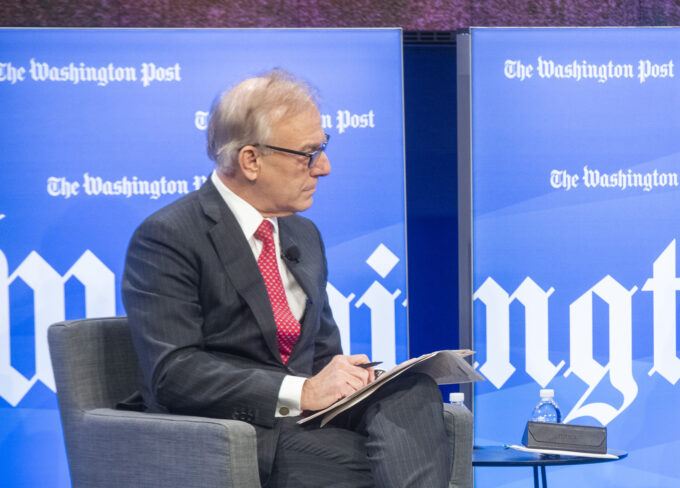





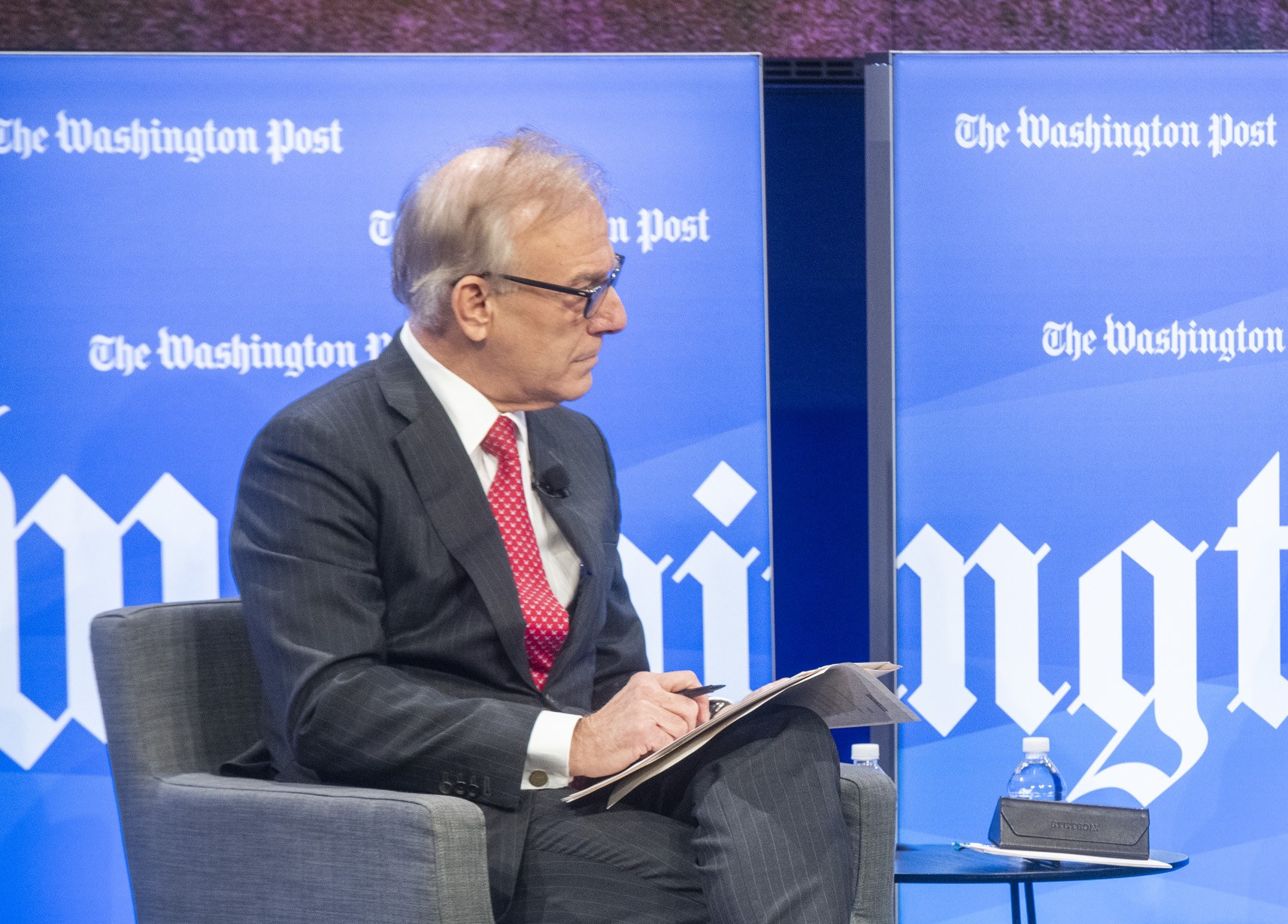


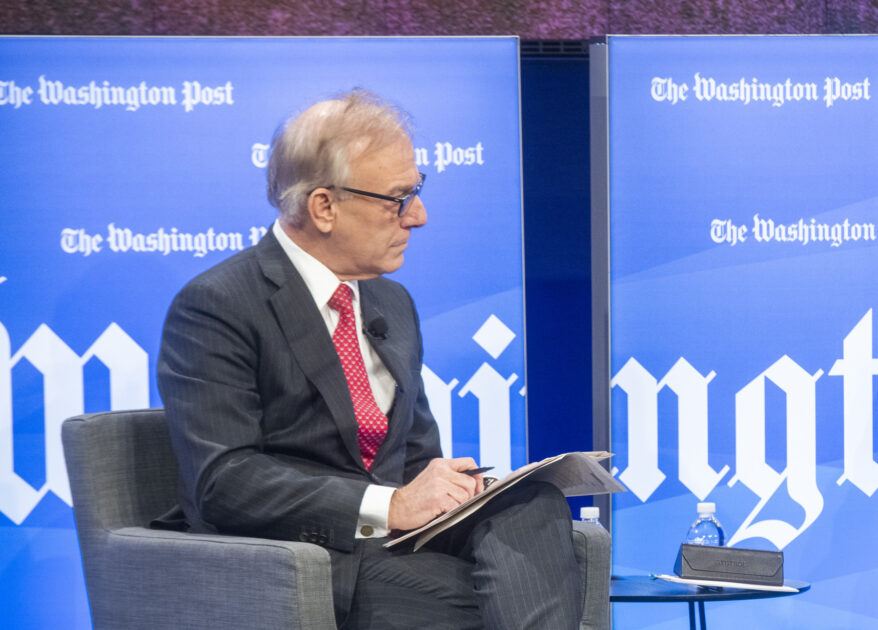

































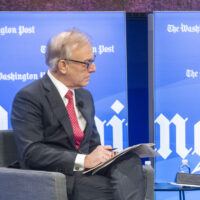



















Photograph Source: Chairman of the Joint Chiefs of Staff – CC BY 2.0
For the past 20 years, the Washington Post’s David Ignatius has been the mainstream media’s leading apologist for the Central Intelligence Agency, and his latest editorial essay (“Intelligence analysts are still doing their job”) indicates he is loathe to yield his title. In reviewing the CIA’s “Annual Threat Assessment,” Ignatius falsely credits the CIA’s analysts with “giving priority to Trump’s concerns but not, so far as I could tell, fudging the facts.” In my 25 years as a CIA intelligence analyst, I often worked on these annual assessment and can assure readers that Ignatius is terribly wrong when he states that in these assessments “priorities can shift, for better or worse, depending on who’s in power.”
Ignatius is arguing that the annual assessments are politicized to some degree as a matter of course, but directors such as Richard Helms, William Colby, Adm. Stansfield Turner, and William Burns refused to engage in politicization. Directors such as William Casey, Robert Gates, and James Schlesinger tried to politicize assessments, but they were often challenged successfully. This year’s assessment is blatantly political and suggests that, like other agencies and departments of government in the Trump era, the CIA is not willing to tell truth to power.
The worst example of politicization in this year’s annual assessment is the fact that climate change was ignored as a critical threat to U.S. national security. For the past several years, one of the strong areas of agreement throughout the intelligence and military communities was the consideration that climate change was the number one threat to U.S. security. The Trump administration is damaging the work of Joe Biden’s Environmental Protection Agency, and the CIA is obviously paying no attention.
The softening of the language toward Russia suggests that CIA’s directorate of intelligence—now reporting to Director John Ratcliffe—decided to accommodate a new softer line on Russia. Ignatius argues that the “underlying analysis of Russia…is consistent with last year’s assessment.” Not true! From my past experience challenging the politicized views of William Casey and Robert Gates in the 1980s, I would guess (and hope) that there are intelligence analysts pushing back against Ratcliffe.
Last year’s assessment argued that Moscow “seeks to project and defend its interests globally and to undermine the United States and the west.” But this year’s assessment accommodates the Trump administration by arguing that the “west poses a threat to Russia,” and that the Kremlin’s objective “to restore Russian strength and security in its near abroad against perceived U.S. and western encroachment…has increased the risks of unintended escalation between Russia and NATO.” Last year’s assessment described Russia as a “resilient and capable adversary across a wide range of domains.” This year’s assessment refers to Russia as a “potential threat to U.S. power, presence and global interests.”
The threat assessment says nothing about disarmament, although Russia, China, Iran, and even North Korea have hinted that they are prepared to open talks with the United States regarding arms control. At the same time, the assessment makes matters worse by exaggerating the possibilities for “adversarial cooperation” among Russia, China, Iran, and North Korea. The CIA anticipates greater threats from each of them individually, posing new challenges to U.S. strength and power globally. It says nothing about dialogue and diplomacy with the group, which coincides with the Trump administration closing down the United States Institute for Peace, which has provided policy guidance in recent years over the possibility of such talks.
In addition to CIA’s tilting in the direction of Trump’s distorted views, we have Secretary of Defense Pete Hegseth reorienting U.S. military policy in a similar direction. And to make matters worse, the secret internal guidance from the Pentagon is in some places word-for-word duplications of text written at the Heritage Foundation last year. According to the Washington Post, the guidance outlines Trump’s vision for winning a potential war with China and for defending against such threats in the “near abroad” as Greenland and the Panama Canal. I participated in numerous war games at the CIA and the National War College over the years, and the United States was on the losing end of all of the encounters designed to defend Taiwan.
There are various examples in the threat assessment of truckling to Donald Trump. A major example is the assessment that the Israel-HAMAS conflict derailed the unprecedented
diplomacy and cooperation generated by the Abraham Accords. The assessment describes a “trajectory of growing stability in the Middle East.” This exaggerates the impact of the Abraham Accords, which Trump constantly praises, as well as the “trajectory of growing stability in the Middle East.” There was no such trajectory, particularly as a result of Israel’s right-wing government.
There are similar distortions throughout the assessment. Iran has taken a military beating since the Hamas attack of October 7th, but the CIA claims that Iran’s conventional and unconventional capabilities pose a threat to U.S. forces. There is the claim that the fall of President Bashar al-Asad’s regime at the hands of opposition forces led by Hay’at Tahrir al-Sham (HTS) has created conditions for extended instability in Syria. Actually, the emergence of HTS offers the first opportunity since 2011 for creating some political stability in Syria, and lifting U.S. sanctions against Syria could contribute to a diplomatic exchange between Washington and Damascus. It is the job of CIA to point to opportunities for U.S. diplomacy, and not just engage in worst-casing of the geopolitical environment.
The intelligence distortions from the annual threat assessment were presented at the same hearing before the Senate Intelligence Committee that heard blatant lies from Director of National Intelligence Gabbard and CIA Director Ratcliffe. It is David Ignatius’s job to expose these distortions and lies, but he is too busy obfuscating them.
In addition to ignoring climate change, there is another existential threat that neither the CIA nor the Pentagon is in a position to describe, which is the threat of having Donald Trump and his troglodytes in the White House for three and a half more years.
The post The Washington Post’s David Ignatius Remains the Leading Apologist for the CIA appeared first on CounterPunch.org.
This content originally appeared on CounterPunch.org and was authored by Melvin Goodman.
This post was originally published on Radio Free.
This content originally appeared on The Real News Network and was authored by The Real News Network.
This post was originally published on Radio Free.
Digging with their bare hands, rescuers in Myanmar have pulled several trapped people to safety in the days following a devastating 7.7-magnitude earthquake, videos circulating on social media show.
In one, a cell phone video taken by two teenage girls, ages 13 and 16, shows them trapped with their 75-year-old grandmother in the cramped darkness of a collapsed apartment building in Mandalay, a city near the epicenter of Friday’s quake.
“We’re trapped in here! We’re trapped in here!” one of them calls out desperately. One girl taps with something metallic on a concrete slab to signal to rescuers where they are.
Only the light of a mobile phone illuminates the claustrophobic scene. Briefly, we get a glimpse of the grandmother’s bloodied face.
Their cell phone signals reached residents, who worked feverishly to dig them out. Separate video footage shows a cluster of men lifting chunks of cement with their bare hands. “We’re ready to uncover them!” one shouts.
The final seconds of the footage shows the three being carried out of the rubble on stretchers on Sunday — a happy ending amid the gloom of the worst earthquake to hit Myanmar in decades.
The military-run country is ill-equipped to respond to the disaster. It is mired in a four-year civil war that has already displaced 3 million people.
So far, the quake has killed more than 3,000 people in Myanmar, according to the military junta that took power in a 2021 coup.
In another video, a 13-year-old girl named Pan Aye Chon is unearthed from the rubble of a collapsed monastery in Mandalay after three hours of digging by rescue workers.
While she survived the quake, family members say she’s heartbroken that many of her friends who were with her died.
When the shaking started midday Friday, the girl ran out of the monastery, but then turned around to go back to try to rescue her friends. Then part of the structure fell and trapped her, family members said.
In the capital, Naypyidaw, a 63-year-old woman was rescued from the rubble after being trapped for 91 hours, or nearly four days, Reuters reported.
Video showed orange uniform-clad rescuers in white helmets searching the partially collapsed remains of a building before the woman was carried out on a stretcher.
Reuters was able to confirm the location of the video as Naypyitaw from the buildings, the road layout and the entrance to the hospital, which matched satellite imagery of the area.
The date when the video was recorded could not be verified independently, Reuters said. However, a Myanmar Fire Services Department statement said the rescue took place on the morning of April 1.
Edited by Mat Pennington and Malcolm Foster
This content originally appeared on Radio Free Asia and was authored by RFA Staff.
This post was originally published on Radio Free.
This content originally appeared on The Real News Network and was authored by The Real News Network.
This post was originally published on Radio Free.
Comprehensive coverage of the day’s news with a focus on war and peace; social, environmental and economic justice.
The post The Pacifica Evening News, Weekdays – April 1, 2025 appeared first on KPFA.
This content originally appeared on KPFA – The Pacifica Evening News, Weekdays and was authored by KPFA.
This post was originally published on Radio Free.
This content originally appeared on The Real News Network and was authored by The Real News Network.
This post was originally published on Radio Free.
This content originally appeared on The Grayzone and was authored by The Grayzone.
This post was originally published on Radio Free.
If you thought SignalGate was bad, wait until you hear about ArchiveGate. Trump illegally fired the National Archivist—the first president in U.S. history to do so since the position was established in the 1930s. This wasn’t just about a change in leadership; it was revenge on the Archivist’s office alerting the DOJ about Trump’s stolen classified documents, which were stored around Mar-a-Lago, a known hub for foreign spies.
But it gets worse. Marco Rubio, who is currently the Trump/Putin lackey Secretary of State, is also serving as the acting National Archivist. This unprecedented conflict of interest raises serious concerns. Rubio is juggling three major roles—Secretary of State, head of USAID, and now, National Archivist. This gives him the power to greenlight the destruction of government records, including his own, without any checks and balances.
The National Archives and Records Administration (NARA) plays a vital role in maintaining the integrity of our political system, overseeing the administration of the Electoral College, preserving government records, and ensuring transparency. Now, with Rubio in control, we face the potential destruction of key documents and rewriting of history that could threaten our democracy. It’s another avenue for Trump to lead a coup to stay in power, like his failed “fake electors” scheme to try to overturn the 2020 election.
As one listener points out in her commentary, edited for clarity, shared in a recent Gaslit Nation salon, we must stay vigilant of these corrupt moves. ArchiveGate is part of a broader plan to hold on to power. But remember, the people are the ultimate force. Together, we can stop this.
Want to enjoy Gaslit Nation ad-free? Join our community of listeners for bonus shows, ad-free episodes, exclusive Q&A sessions, our group chat, invites to live events like our Monday political salons at 4pm ET over Zoom, and more! Sign up at Patreon.com/Gaslit!
Show Notes:
Reject Hypernormalization: Gaslit Nation Launches New Project, Survey https://www.gaslitnationpod.com/survey-reject-hypernormalization
Trump’s firing of the U.S. government archivist is far worse than it might seem: The National Archives and Records Administration does more than just preserve documents: It’s the scaffolding of the American political system. https://www.fastcompany.com/91277620/trump-firing-national-archivist-colleen-shogan
House Dems cite ‘fundamental conflict’ of Rubio’s acting appointments atop USAID and National Archives: Lawmakers’ concerns stem from a March 11 memo instructing USAID employees to prepare for mass destruction of agency records. https://www.govexec.com/management/2025/03/house-dems-cite-fundamental-conflict-rubios-acting-appointments-atop-usaid-and-national-archives/404013/
The ‘fake electors’ and their role in the 2020 election, explained https://www.washingtonpost.com/national-security/2023/07/20/fake-electors-charges-trump-2020-election/
This content originally appeared on Gaslit Nation and was authored by Andrea Chalupa.
This post was originally published on Radio Free.
This content originally appeared on VICE News and was authored by VICE News.
This post was originally published on Radio Free.
This content originally appeared on Democracy Now! and was authored by Democracy Now!.
This post was originally published on Radio Free.
This content originally appeared on ProPublica and was authored by ProPublica.
This post was originally published on Radio Free.
This content originally appeared on ProPublica and was authored by ProPublica.
This post was originally published on Radio Free.